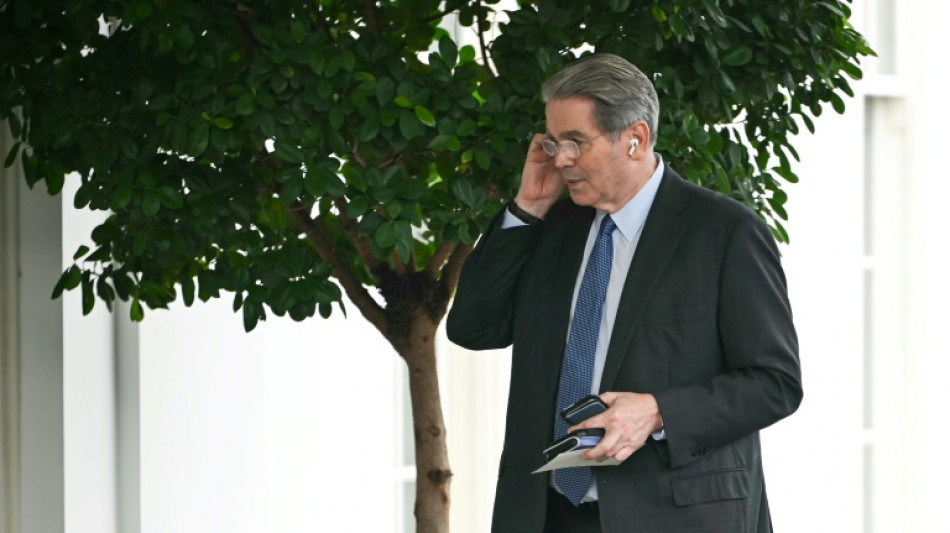US Treasury chief eyes China tariff deadline extension in talks next week / Photo: ANDREW CABALLERO-REYNOLDS - AFP/File
US Treasury Secretary Scott Bessent said Tuesday that he would meet his Chinese counterparts in Stockholm next week for tariff talks, eyeing an extension to a mid-August deadline for levies to snap back to steeper levels.
Bessent told Fox Business that he will be speaking with Chinese officials on Monday and Tuesday for a third round of high-level negotiations, to work out what he said would be a likely postponement of the deadline.
Washington and Beijing slapped escalating, tit-for-tat levies on each other's exports earlier this year -- reaching triple digit levels -- stalling trade between the world's two biggest economies as tensions surged.
But after top officials met in Geneva in May, both sides agreed to temporarily lower their tariff levels in a de-escalation set to expire next month. Officials from the two countries also met in London in June.
"That deal expires on August 12, and I'm going to be in Stockholm on Monday and Tuesday with my Chinese counterparts, and we'll be working out what is likely an extension then," Bessent said in the interview.
He noted that Washington also wanted to speak about a wider range of topics, potentially including Chinese purchases of Iranian and Russian oil.
For other economies facing an earlier August 1 deadline for higher US tariffs to kick in, Bessent said he expects the duties will boomerang back up -- but signaled Washington would continue negotiations.
Trade talks between the United States and China had initially stalled after their Geneva meeting in May, although Bessent said trade is in a good place now with Beijing.
Disagreements bubbled to the fore when US officials earlier accused Beijing of violating their pact and slow-walking export license approvals for rare earths -- crucial materials for making electronics and other goods.
Since then, the two countries have agreed on a framework to move forward with their Geneva consensus.
The United States has been seen relaxing certain restrictions on semiconductor sales to China, while Beijing has been reviewing applications for export licenses of controlled items.
Since returning to the White House in January, President Donald Trump has imposed a sweeping 10 percent tariff on allies and competitors alike, alongside steeper levels on steel, aluminum and autos.
The 10 percent blanket rate is expected to increase for dozens of economies -- although not China -- come August 1, unless they reach an agreement with Washington to avert this outcome.
So far, the Trump administration has only announced deals with Britain, Vietnam and Indonesia. But Bessent maintained Tuesday that more pacts are to come.
Y.Bernard--LCdB
